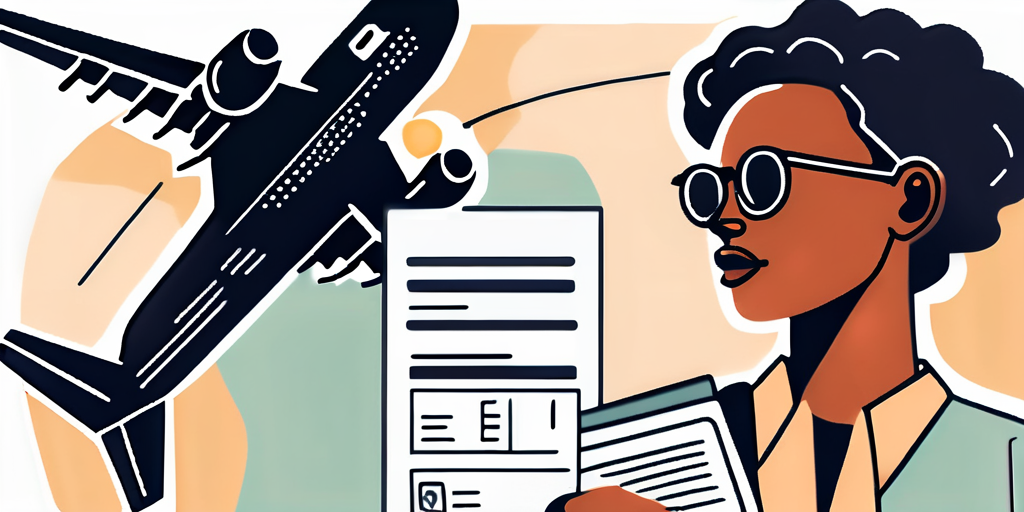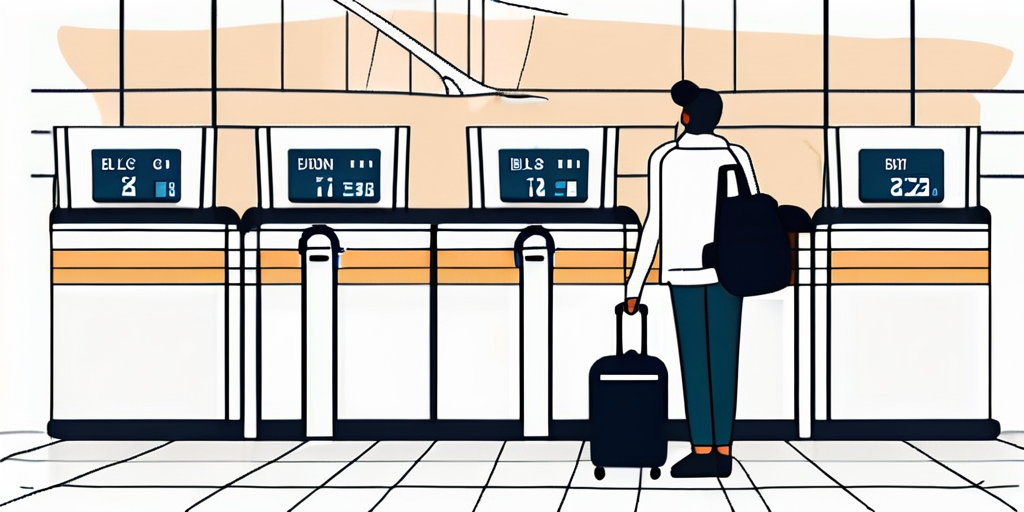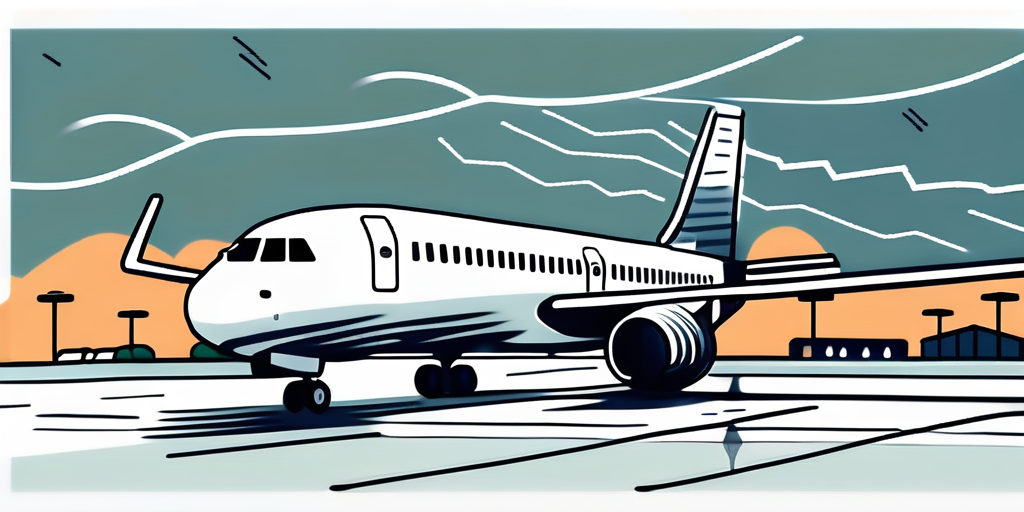Department of Transportation: Guidelines for Flight Cancellation
Discover the Department of Transportation's rules on flight cancellations. Learn how to navigate disruptions efficiently.
Flight cancellations can be frustrating and disruptive, causing inconvenience and disappointment for travelers. In this article, we will explore the various aspects of flight cancellations and provide you with the essential information you need to know. From understanding the reasons behind flight cancellations to the Department of Transportation's role in regulating them, we will cover it all. Additionally, we will discuss your rights as a passenger, how to deal with flight cancellations, and explore what the future holds for flight cancellation policies.
Understanding Flight Cancellations
Flight cancellations can occur due to a range of factors, from adverse weather conditions to technical issues with the aircraft. Understanding the basics of flight cancellations is crucial for passengers to manage their expectations and minimize inconvenience.
The Basics of Flight Cancellations
Flight cancellations happen when an airline decides to cancel a scheduled flight. This decision may be made in advance or at the last minute, depending on the circumstances. Passengers are notified of the cancellation, and alternative arrangements are typically offered.
Reasons for Flight Cancellations
There are various reasons why flights get canceled. Adverse weather conditions, such as severe storms or heavy snowfall, can make it unsafe for the aircraft to operate. Additionally, mechanical issues, crew availability problems, or operational disruptions due to air traffic control can also lead to flight cancellations. It's essential to remember that safety is the top priority for airlines.
Let's delve deeper into some of the common reasons for flight cancellations. Adverse weather conditions can include not only storms and heavy snowfall but also fog, lightning, or even extreme heat. These weather conditions can affect various aspects of a flight, from takeoff and landing to the overall safety of the aircraft during the journey. Airlines closely monitor weather forecasts and work in collaboration with air traffic control to make informed decisions regarding flight cancellations.
In addition to weather-related issues, technical problems with the aircraft can also result in flight cancellations. Modern airplanes are complex machines with numerous intricate systems that need to be in perfect working order for safe travel. If any malfunction or potential issue is detected during routine maintenance checks or pre-flight inspections, the airline may decide to cancel the flight to ensure passenger safety. While this can be frustrating for passengers, it is a necessary precaution to prevent any potential accidents or incidents.
Furthermore, crew availability problems can also contribute to flight cancellations. Airlines rely on a team of pilots, flight attendants, and ground staff to operate their flights smoothly. If there are unexpected absences or scheduling conflicts among the crew members, the airline may not have enough personnel to operate the flight, leading to a cancellation. This highlights the importance of proper crew management and contingency plans within the airline industry.
Operational disruptions due to air traffic control can also play a role in flight cancellations. Air traffic control is responsible for managing the flow of air traffic, ensuring safe separation between aircraft, and coordinating arrivals and departures. In cases of heavy air traffic, system failures, or other unforeseen circumstances, air traffic control may impose restrictions or delays, leading to flight cancellations. These decisions are made to maintain the overall safety and efficiency of the airspace.
Understanding the various reasons for flight cancellations can help passengers better navigate the challenges that may arise. By staying informed, being flexible with travel plans, and maintaining open communication with the airline, passengers can minimize inconvenience and make the best out of unexpected situations. Remember, while flight cancellations can be frustrating, they are ultimately made with passenger safety in mind.
Department of Transportation's Role in Flight Cancellations
The Department of Transportation (DOT) plays a crucial role in regulating and overseeing flight cancellations. Let's take a closer look at their responsibilities and how they handle these situations.
Regulatory Responsibilities of the Department of Transportation
The DOT has established regulations and guidelines to protect passenger rights and ensure fair treatment for air travelers. These regulations cover aspects such as compensation for flight cancellations and rebooking policies. Airlines are obligated to follow these regulations in case of flight cancellations.
One important aspect of the DOT's regulatory responsibilities is to ensure that airlines provide clear and transparent information to passengers regarding their rights in the event of a flight cancellation. This includes informing passengers about their entitlement to compensation, rebooking options, and any additional assistance they may be eligible for. By setting these guidelines, the DOT aims to empower passengers and hold airlines accountable for their actions.
How the Department of Transportation Handles Flight Cancellations
When flight cancellations occur, the DOT monitors airlines' compliance with regulations regarding passenger rights. They investigate complaints, enforce penalties if necessary, and work towards improving airline practices to minimize cancellations and passenger inconvenience. The DOT strives to ensure that airlines provide appropriate compensation and assistance to affected passengers.
One way the DOT handles flight cancellations is by closely monitoring airlines' communication with passengers. They assess whether airlines are promptly notifying passengers about cancellations and providing them with alternative travel options. The DOT also evaluates the effectiveness of airlines' customer service in handling passenger inquiries and concerns during these challenging times. By doing so, they aim to improve the overall passenger experience and ensure that airlines are taking the necessary steps to mitigate the impact of flight cancellations.
Furthermore, the DOT collaborates with other government agencies and industry stakeholders to develop strategies and initiatives aimed at reducing the occurrence of flight cancellations. This includes working with airlines to improve their operational efficiency, addressing issues related to maintenance and infrastructure, and promoting better contingency planning. By taking a proactive approach, the DOT aims to minimize the disruptions caused by flight cancellations and enhance the reliability of air travel for passengers.
Your Rights as a Passenger
As a passenger, it's essential to be aware of your rights when it comes to flight cancellations. Understanding your entitlements can help you navigate the situation effectively and ensure you receive fair treatment.
 When it comes to compensation for flight cancellations, it's important to note that eligibility varies based on several factors. The reason for cancellation, the departure/arrival location, and the airline's policies all play a role in determining whether you are entitled to compensation. To ensure you are well-informed, it's recommended to familiarize yourself with the relevant regulations and consult the airline's terms and conditions.
When it comes to compensation for flight cancellations, it's important to note that eligibility varies based on several factors. The reason for cancellation, the departure/arrival location, and the airline's policies all play a role in determining whether you are entitled to compensation. To ensure you are well-informed, it's recommended to familiarize yourself with the relevant regulations and consult the airline's terms and conditions.
Compensation for Flight Cancellations
In many cases, passengers may be entitled to compensation for flight cancellations. This compensation can help offset the inconvenience and additional expenses caused by the cancellation. However, it's crucial to understand that not all flight cancellations will qualify for compensation. For example, if the cancellation is due to extraordinary circumstances beyond the airline's control, such as severe weather conditions or political unrest, you may not be eligible for compensation.
On the other hand, if the cancellation is within the airline's control, such as technical issues or crew shortages, you may be entitled to compensation. The specific amount of compensation can vary depending on the distance of the flight and the length of the delay caused by the cancellation. It's important to note that compensation regulations may differ between countries and regions, so it's advisable to research the applicable laws for your specific situation.
Rebooking and Refund Policies
In addition to compensation, airlines are typically obligated to offer you alternative flights if your original flight is canceled. They may also provide options for rebooking or refunding your ticket cost. Understanding the airline's policies regarding rebooking and refunds can help you make informed decisions and minimize disruption to your travel plans.
When it comes to rebooking, airlines will usually offer you alternative flights that are as close as possible to your original travel schedule. However, if the available options do not suit your needs, you may have the right to request a refund instead. It's important to communicate your preferences clearly to the airline and understand the options available to you.
Refunds, on the other hand, can vary depending on the type of ticket you purchased. Non-refundable tickets may not be eligible for a full refund, but airlines may offer a partial refund or a voucher for future travel. Refund policies can differ between airlines, so it's crucial to review the terms and conditions of your ticket to understand your rights in case of a cancellation.
How to Deal with Flight Cancellations
Experiencing a flight cancellation can be a stressful situation for travelers. However, there are steps you can take to manage the situation effectively and minimize inconvenience.

Steps to Take When Your Flight is Cancelled
If your flight is canceled, remain calm and approach the airline staff to understand the available options. Consider contacting the airline's customer support or using their online tools to rebook or find alternative flights. Additionally, it's advisable to stay informed about the latest updates regarding your flight and have a backup plan in case alternative arrangements are not immediately available.
Tips for Avoiding Flight Cancellation Hassles
While flight cancellations may be unavoidable in some cases, there are measures you can take to reduce the likelihood of being impacted. Booking flights with longer layovers or choosing reliable airlines with a good track record can improve your chances of avoiding cancellations. Additionally, staying informed about weather conditions, monitoring your flight status, and having travel insurance can provide added peace of mind.
Future of Flight Cancellations
The aviation industry is constantly evolving, with advancements in technology and changes in regulations shaping the future of flight cancellations. Let's explore what potential developments are on the horizon.

Potential Changes in Flight Cancellation Policies
Regulations regarding flight cancellations may undergo revisions to ensure better passenger protection and improved industry practices. This could include aspects such as increased compensation for passengers and stricter enforcement of regulations by aviation authorities.
How Technology is Affecting Flight Cancellations
Advancements in technology provide opportunities for better communication and efficient management of flight cancellations. Enhanced real-time data analysis, improved weather forecasting systems, and automated rebooking processes can help minimize the impact of flight cancellations on passengers. Airlines are continually exploring technological solutions to streamline operations and enhance the passenger experience during disruptions.
In conclusion, understanding flight cancellations, your rights as a passenger, and how to effectively deal with these situations is vital for a smooth travel experience. The Department of Transportation plays a significant role in regulating flight cancellations, and advancements in technology hold promising possibilities for the future. By staying informed and prepared, you can navigate flight cancellations with confidence and minimize the inconvenience they may cause.
Get the Compensation You Deserve with ClaimCompass
If you've experienced a flight cancellation, delay, or overbooking, ClaimCompass is here to help. As experts in air passenger rights in Europe, we can assist you in claiming up to 600€ in compensation. Our hassle-free process starts with our free compensation calculator; simply enter your flight details to check your eligibility and potential compensation amount. We handle the entire claim process for you, from submission to communication with the airline, and even court proceedings if necessary. You pay nothing unless we successfully secure your compensation, at which point we retain a 35% commission (incl. VAT). Don't let a disrupted flight set you back. Submit a claim today and let ClaimCompass advocate for your rights.
